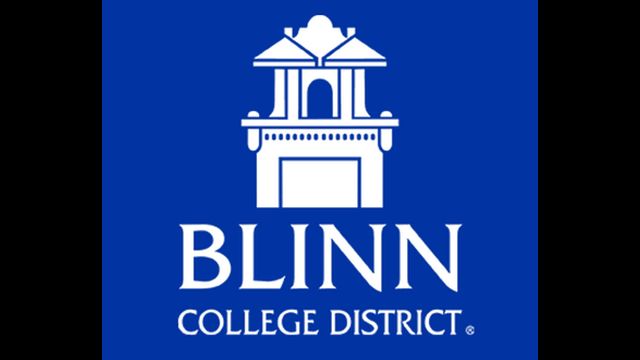
The Texas legislature’s new formula for distributing money to the state’s 50 community colleges has been finalized.
The higher education coordinating board recently approved the rules for administrating House Bill eight.
Funding will be based on awarding degrees, certificates, and for what the coordinating board calls “other credentials of value”.
After HB eight was signed in June, Blinn executive vice chancellor Leighton Schubert said it was a struggle determining the budget because the coordinating board did not determine the funding formula until September first.
Schubert said they had to use the state’s old funding formula when drafting their fiscal year 2024 budget.
Blinn College administrators tell WTAW News they will release how the new funding formula will impact their campuses after presenting that information to the board of trustees.
Community colleges will get half of the $684 million dollars in state money on October 15th, a fourth next February, and the remaining 25 percent next June.
Click below for comments from Leighton Schubert’s visit with WTAW’s Bill Oliver on June 13, 2023:
News release from the Texas higher education coordinating board:
The Texas Higher Education Coordinating Board (THECB) approved emergency rules at a special-called board meeting that will govern Texas’ new community college funding system, effective Sept. 1.
House Bill 8 (HB 8), passed by the Texas Legislature during its 88th session and signed into law by Governor Greg Abbott in June, codified the new, dynamic model that will fund community colleges in Texas. The model moves to an outcomes-based approach and rewards colleges for awarding degrees, certificates, and other “credentials of value.”
“The Texas of tomorrow depends on ensuring our students have the workforce training and preparation needed to succeed in dynamic, high-demand industries,” said Gov. Abbott. “House Bill 8 is a transformational step forward in funding Texas community colleges based on measurable outcomes and supporting work-based learning opportunities for hardworking Texans. I thank the Texas Legislature and the Texas Higher Education Coordinating Board for working to improve the community college system in the state of Texas and help meet the needs of our growing state.”
This action by the Coordinating Board finalizes the fiscal year 2024 formula and the new funding model for community colleges. Formula funding will be distributed in three installments with 50% being released on Oct. 15, 25% on Feb. 15 and the final 25% on June 15.
“The Board’s unanimous approval of these new emergency rules to implement House Bill 8 will transform how we fund community colleges, putting a primary focus on student outcomes,” said Commissioner of Higher Education Harrison Keller. “This was the culmination of many months of research, planning, data analysis, outreach, communications, and collaboration following the signing of House Bill 8 by Governor Greg Abbott.”
The legislation, sponsored and championed by Rep. Gary VanDeaver and Sen. Brandon Creighton, expands upon the report and year-long efforts of the Texas Commission on Community College Finance.
“The Board is grateful to the committee members, community college leaders, and agency staff who helped get the new funding model to full implementation within just a few short months,” said Chairman of the Coordinating Board Dr. Fred Farias. “Now our community colleges can work toward improving student outcomes and increasing the number of credentials of value so more Texans benefit from our rich economy.”
The passage of HB 8, and the allocation of $684 million in the state budget, positions Texas as a national leader in tying funding for community colleges to measurable student-focused outcomes. These include:
• The number of credentials of value awarded, including badges, certificates, and degrees, that position graduates for well-paying jobs.
• Credentials of value awarded in high-demand fields where employers are looking for skilled employees.
• Successful student transfers from community colleges to four-year universities.
• Completion of a sequence of dual credit courses, which are offered to high school students and can set them on early pathways to success.
